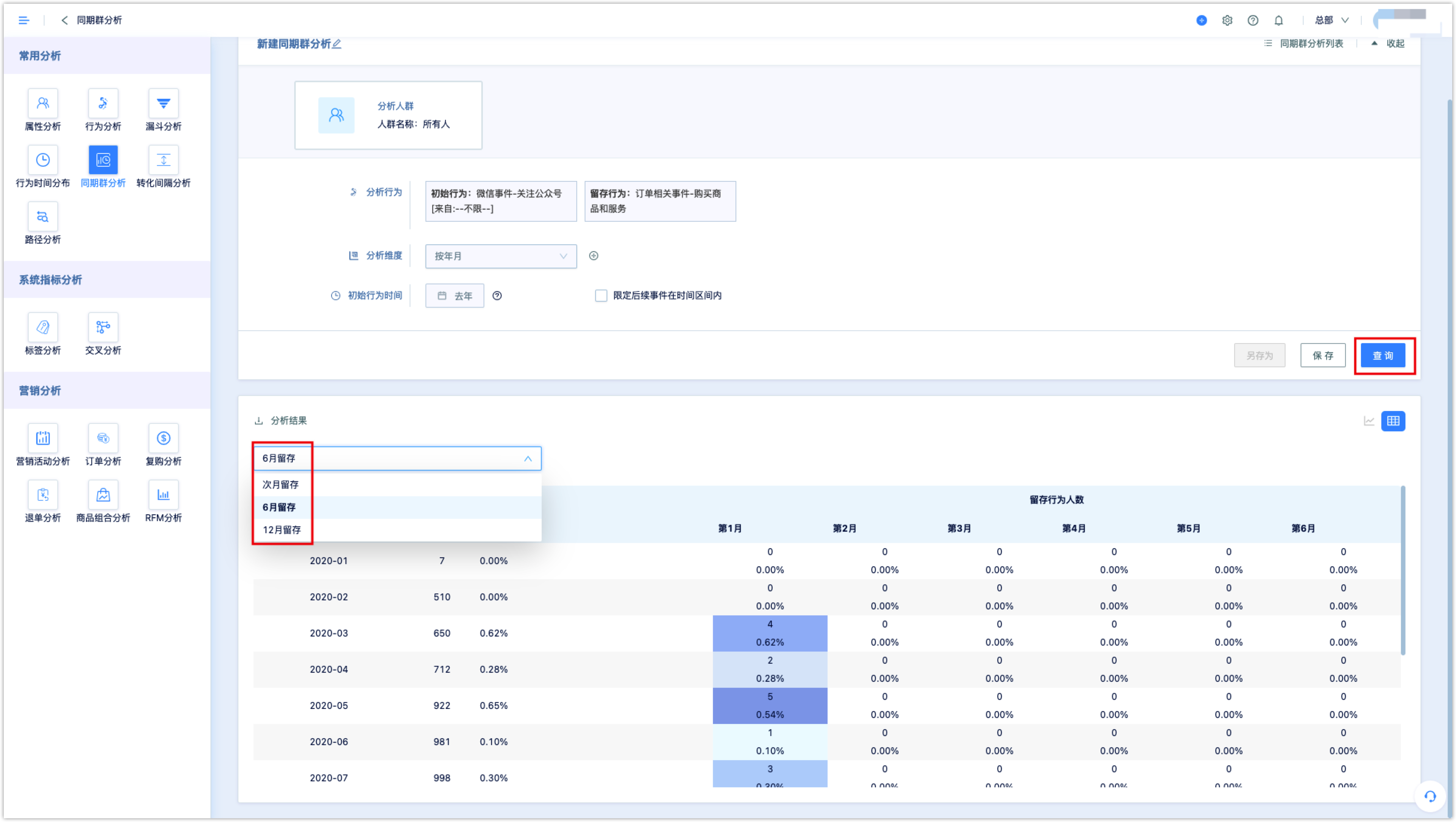Cohort analysis
1.Why is cohort analysis is needed?#
Cohort analysis mainly divides users into different groups according to the time when the initial behavior occurs, and then analyzes how the behavior of similar groups changes over time.
For example, in January 2020, 100 people followed the WeChat official account. We would like to know how many people submitted registration forms each month in the next 5 months. At the same time, we also want to compare how many people followed the official account each month for the whole year of 2020, and how many people submitted registration forms each month for the next 5 months.
All behavior events in DM Hub can be analyzed by cohort analysis.
Cohort analysis can assist marketers analyze problems such as:
1)In the next few days/weeks/months, how many of the followers of WeChat official account have completed the expected behavior, such as purchase, registration as a member, etc.
2)The new APP is launched, what is the user's return visit behavior?
3)A new function has been launched. Are users affected by the new function and use the product more?
2.Process guide#
2.1Set analysis group#
Limit the customer group, and you can also add filter conditions to the customer group.
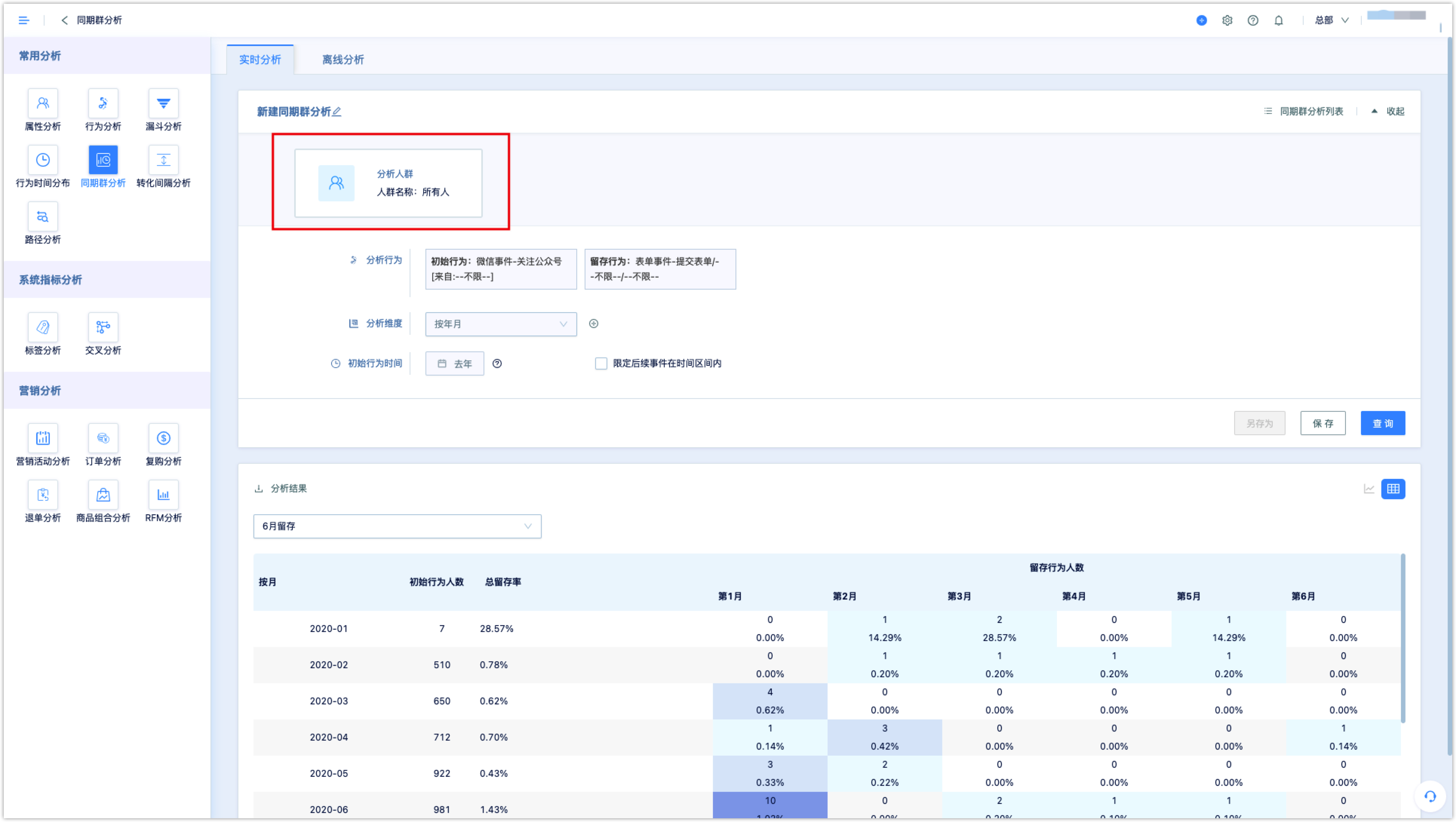
2.2Set analyzed event#
Confirm the initial behavior and retention behavior. If you need to see the trend of followers' expected purchase behavior over time, choose the initial behavior “follow the official account”, and the retention behavior is “purchase goods and services”, as shown in the figure below. Both system events and custom events in the system are supported for selection.
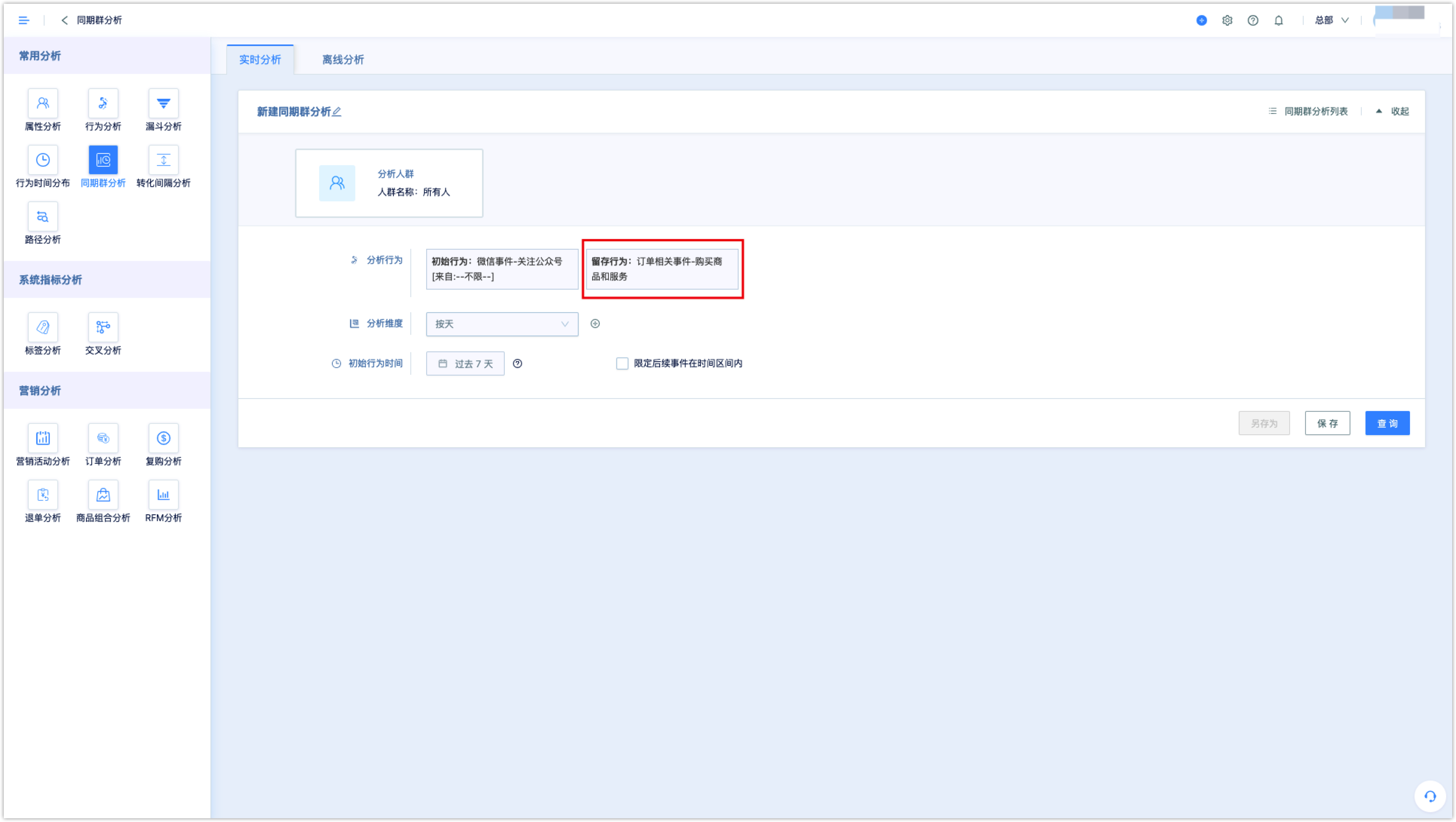
2.3Set analysis dimension#
The analysis dimension of the cohort is supported to query by day, week, and month, corresponding to the analysis of daily retention, weekly retention, and monthly retention. You can also add analysis dimensions, select customer attributes and other dimensions.
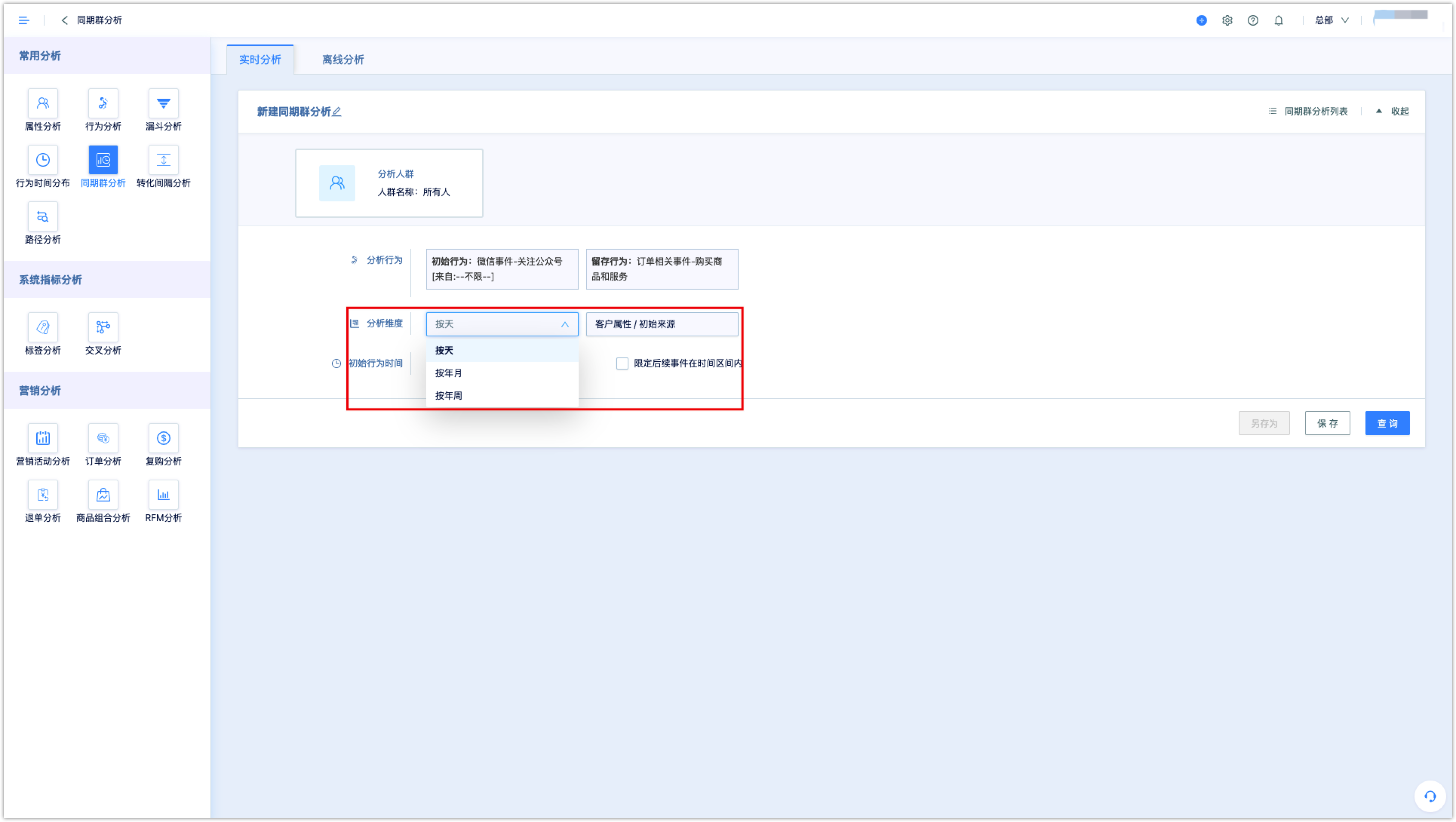
2.4Initial event time#
Set the initial behavior time, that is, the time range during which the initial behavior occurs. It can be limited to [subsequent events within the time interval], and the retained event will only be counted as retained when the time of occurrence is within the limited range.
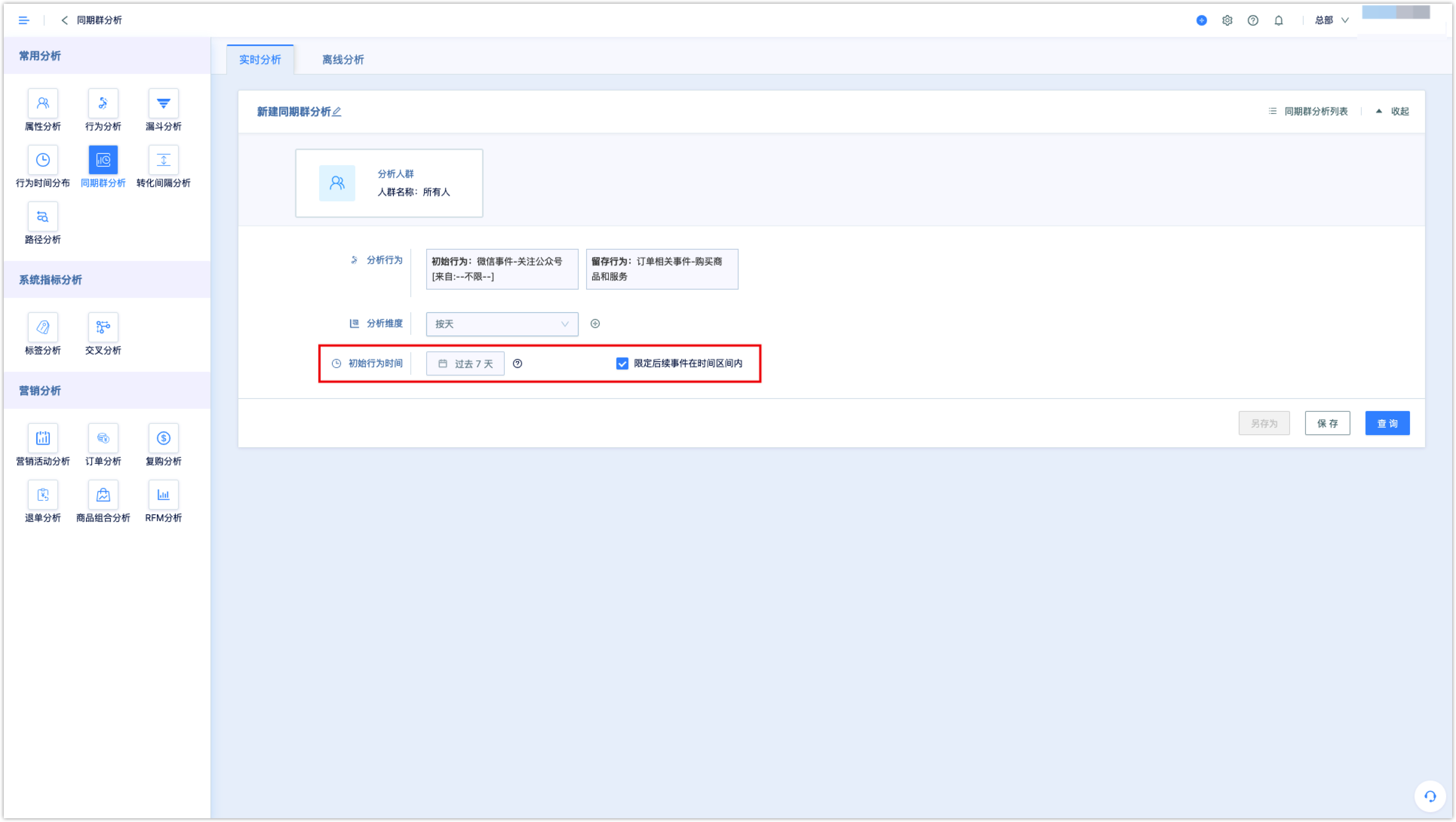
2.5See analysis result#
Click [Query] to get the analysis result. According to the analysis dimension, the retention for different time periods can be set.
